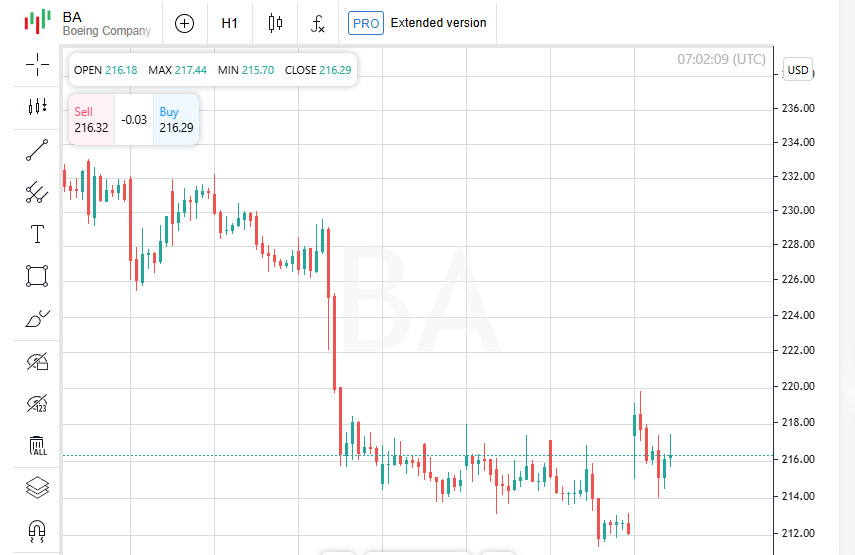Wall Street loses momentum
US stocks closed lower on Tuesday, breaking a three-session streak of record highs. The decline followed remarks by Federal Reserve Chair Jerome Powell, who stressed the need to carefully weigh inflation risks and signs of a cooling labor market when deciding on future interest rate moves.
Tech stocks take the hit
The Nasdaq led the downturn. Shares of Nvidia slid nearly 3 percent, erasing part of the gains from the previous session, when the chipmaker announced plans to invest up to 100 billion dollars in OpenAI.
Other tech heavyweights including Amazon, Microsoft and Apple also finished in the red, adding pressure to the sector.
The Dow Jones Industrial Average (.DJI) fell 88.76 points, or 0.19%, to 46,292.78, the S&P 500 (.SPX) lost 36.83 points, or 0.55%, to 6,656.92 and the Nasdaq Composite (.IXIC) lost 215.50 points, or 0.95%, to 22,573.47.
Helping to limit declines on the Dow Jones, Boeing shares rose 2% after it secured an order from Uzbekistan Airways worth over $8 billion.
Powell avoids giving signals
Investors had hoped for clearer guidance on when the Fed might cut rates again, but Powell offered no timeline. Last week the central bank reduced rates for the first time this year and hinted that further cuts could follow.
Bright spot from Micron
After the closing bell, Micron Technology shares rose 0.7 percent on the back of strong earnings and an upbeat forecast. During the regular session, the stock had already gained over 1 percent.
Asia follows Wall Street
Asian markets retreated on Wednesday, echoing Wall Street's decline. Powell's cautious stance, combined with fresh economic data pointing to slower growth, fueled investor concerns.
The MSCI index of Asia-Pacific shares excluding Japan slipped 0.4 percent by mid-morning. The S&P 500 had fallen 0.6 percent the day before, marking its steepest one-day drop in three weeks.
Australian market leads regional drop
Australian shares slid about 1 percent, leading losses across Asia. The decline came after August inflation data showed stronger-than-expected growth, reinforcing concerns about rising consumer prices. Meanwhile, US stock futures traded flat.
Dollar steadies after recent weakness
Following two sessions of declines, the US dollar regained some ground. The dollar index edged up 0.1 percent to 97.301. Against the yen, the greenback rose to 147.735 as traders digested fresh remarks from Federal Reserve officials.
Breather for Asian equities
Asian stocks, which recently hit a four-year high, moved into a mild pullback. Still, September is shaping up to be the strongest month of the year for the region, supported by a weaker dollar, gains in tech shares, and renewed expectations of monetary easing by the Fed.
Japan faces industrial slowdown
The Nikkei fell 0.5 percent after private sector data showed factory activity contracting at the sharpest pace in six months. A further decline in new orders weighed heavily on the survey results.
Bets on Fed easing gain momentum
Investor expectations for another US rate cut strengthened. Futures tied to the federal funds rate now imply a 93 percent chance of an October cut, up from 89.8 percent the previous day.
Treasury yields move lower
US government bonds drew solid demand. The yield on the 10-year Treasury slipped to 4.1061 percent from 4.118 percent at Tuesday's close. The two-year yield also retreated, falling to 3.5673 percent from 3.592 percent.
US economy shows signs of cooling
Fresh data released on Tuesday reinforced worries about the pace of US economic growth. Figures from S&P Global revealed that the Purchasing Managers' Index declined for a second consecutive month in September, pointing to a slowdown in business activity.
Oil prices edge higher amid supply uncertainty
Brent crude climbed 0.4 percent to 67.87 dollars per barrel. The rise followed stalled negotiations over the resumption of oil exports from Iraqi Kurdistan, easing investor concerns that a swift return of supply could tip the market toward oversupply.
Gold retreats after record high
After setting a new all-time peak on Tuesday, gold prices slipped slightly. Spot gold fell 0.2 percent to 3757.49 dollars per ounce as investors took profits following the surge.













